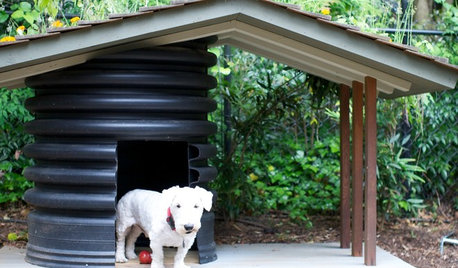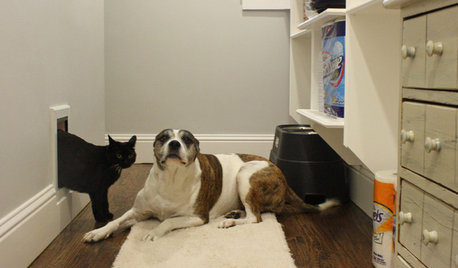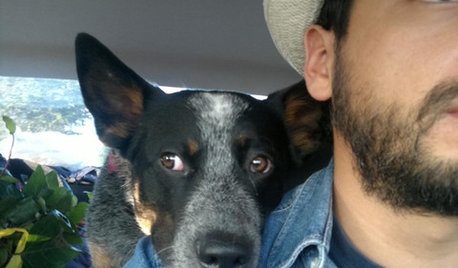Black Lab - cruddy ears
hrajotte
13 years ago
Related Stories

PETSHow to Help Your Dog Be a Good Neighbor
Good fences certainly help, but be sure to introduce your pup to the neighbors and check in from time to time
Full Story
HOME OFFICESQuiet, Please! How to Cut Noise Pollution at Home
Leaf blowers, trucks or noisy neighbors driving you berserk? These sound-reduction strategies can help you hush things up
Full Story
PETSHouzz Call: Send in the Dogs
Have the greatest dog in the world? Share your best design photo featuring the dog you live or work with
Full Story
PETSWhat Chihuahuas Can Teach Us About Interior Design
Who knew these tiny dogs could be such a huge fount of design tips? Houzzers did
Full Story
KITCHEN DESIGNKitchen Counters: Durable, Easy-Clean Soapstone
Give bacteria the boot and say sayonara to stains with this long-lasting material that's a great choice for kitchen and bath countertops
Full Story
PETSPet-Proofing Your Home: A Room-by-Room Guide
Not all pet dangers are obvious. Keep furry friends safe and sound by handling all of these potential hazards
Full Story
FEEL-GOOD HOME6 Design Ideas for Happy Pets
Keep your dog or cat feeling safe and in high spirits, and you'll all feel more at peace. Here's how
Full Story
PETS50 Dog Photos Worth a Wag
Design hounds: Share in the pet love with Houzzers' snapshots of their beloved dogs at home, in the workshop and at play
Full Story
GARDENING GUIDESTop 12 Summer-Blooming Perennials for Deer-Resistant Drama
Can you have garden color, fragrance and exciting foliage with hungry deer afoot? These beauties say yes
Full Story
PETSHouzz Pets Survey: Who Rules the House — Dogs or Cats?
New data shows that pets make people happy, and pet owners love spending big to return the favor
Full StoryMore Discussions








mazer415
sylviatexas1
Related Professionals
De Pere Architects & Building Designers · Enterprise Architects & Building Designers · Frisco Architects & Building Designers · Portage Architects & Building Designers · Annandale Furniture & Accessories · Manhattan Furniture & Accessories · Philadelphia Furniture & Accessories · Irmo Furniture & Accessories · Lakeside Cabinets & Cabinetry · Marco Island Cabinets & Cabinetry · Bothell Flooring Contractors · North Tustin Flooring Contractors · Suitland Flooring Contractors · Tigard Flooring Contractors · Englewood Flooring ContractorshrajotteOriginal Author
weed30 St. Louis
ilovepoco
quasifish
doberman_2007
Meghane